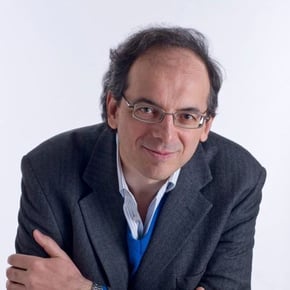The hypothesis put forward by Yale School of Medicine. Menopause could be put off by as long as 20 or 30 years by harvesting a portion of ovarian tissue at an early age, storing it at -196°C and reinserting it into the body, under the skin, before the age of 50.
In a not-too-distant future, will every woman be able to choose whether to enter menopause? And if they decide to enter menopause, will they be able to determine for themselves (or rather, with their doctor) the best time to come out of the fertile period of their life?
These somewhat sci-fi scenarios have now been set in motion in real life by a study coming from one of the most prestigious universities in the United States, Yale, led by one of the pioneers in the field, Kutluk Oktay, professor of gynaecology and director of the Laboratory of Molecular Reproduction and Fertility Preservation.
Oktay — the first person in the world to perform an ‘explantation’ procedure, followed, years later, by ovarian autotransplantation with cryopreserved tissue, in a cancer patient, way back in 1999 — asked himself what would happen if this technique were used on a large scale, in healthy women. This would be achieved by harvesting ovarian tissue during a woman’s youth (or before the age of 40), freezing it at ultra-low temperatures and reimplanting it into the body at a later age.
The oocytes, writes Oktay in the American Journal of Obstetrics and Gynecology, would be reactivated, triggering a series of biochemical and hormonal activities that would extend reproductive years, significantly delaying — or outright eliminating — menopause.
Cryopreservation for fertility
As explained in a press release from Yale School of Medicine, so far, cryopreservation and autotransplantation of ovarian tissue have been successfully used in cancer patients requiring chemotherapy, to preserve their fertility.
During this outpatient procedure, the surgeon uses keyhole surgery to remove layers of the outer portion of the ovary. These layers contain a huge number of immature oocytes, surrounded by a thin membrane of follicular cells (these microscopic ‘structures’, made up of oocytes and follicular cells, are called primordial follicles and are an essential reserve for women’s fertility).
After harvesting, the ovarian tissue is preserved in liquid nitrogen (at around -195°C) for many years.
The primordial follicles can then be thawed and reimplanted under the skin, from where, 3 to 10 days later, they start to function again, regaining connections with the surrounding blood vessels and restoring ovarian function in approximately three months.
On average, 40% of the follicles are reactivated, but this percentage may vary according to the woman’s age, the amount of tissue removed and the number of primordial follicles present at the time of the procedure.
Fractionated procedures for better results
So, leveraging data gathered since 1999 on hundreds of women who have undergone ovarian tissue harvesting, the Yale University researchers developed a set of mathematical models to accurately envisage the new possible scenarios.
For example, if a quarter of the ovarian tissue is harvested from a healthy 25-year-old woman and implanted before she turns 50, menopause could be delayed by 11.8 years (or by 15.5 years if techniques for ensuring oocyte survival improve, with a survival rate rising from 40% to 80%). If the reimplantation is done in fractions, over 3 or 6 procedures, it may be possible to achieve a delay of 23 or 31 years (or even 47 years, in the event of an oocyte survival rate of 80%), respectively.
This would potentially spell the end of menopause. All women would be able to undergo several procedures in their lifetime, starting with just one harvesting procedure in their youth, and would never enter menopause.
This could bring benefits of various kinds. Women would have the opportunity to get pregnant at an age when they have already invested all the time necessary for professional fulfilment. But they could also avoid the negative effects associated with the decline in oestrogen production, in terms of the bones, mood and nervous system, as well as the adverse cardiovascular effects typical of menopause, not to mention enjoying a full sex life for longer. “For the first time in medical history, we have the ability to potentially delay or eliminate menopause,” said Oktay.
Deep concerns remain in the scientific world
However, not everyone in the scientific community is convinced by this prospect, with some openly criticising both the medicalisation of a natural condition like menopause, which is being treated as a disease to stave off indefinitely, and the approach, which tends to remove ageing, primarily from a cultural— but also from a medical — perspective.
What’s more, these possibilities do not seem to give due consideration to the right of children not to be born to mothers who are too old, even if their fertility has been preserved by a transplant. And then there’s the unknown factor of possible adverse effects on the body linked to these procedures. Last but not least, there are those who fear the business that would be drummed up to make promises to women about bidding farewell to menopause indefinitely, or delaying it by decades, with all the manipulation and pressure that would follow. So there is still a great deal to be discussed before do-it-yourself menopause can be achieved, regardless of advances in biomedical techniques.




